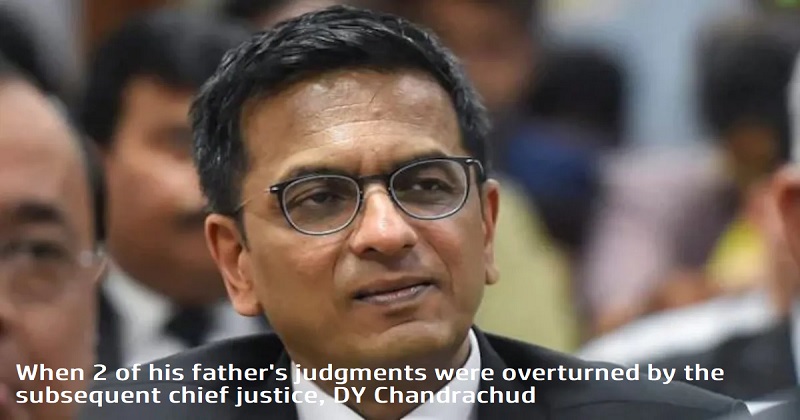
The first Chief Justice of India, Justice DY Chandrachud, also served as a Chief Justice, as did his father, Justice YV Chandrachud. Justice UU Lalit, who retires on November 8, will be replaced by him.
In his illustrious career, Justice DY Chandrachud twice overruled his father’s rulings.
While reaffirming that the Right to Privacy is a basic right in 2017, Justice DY Chandrachud overturned a contentious ruling that upheld the Emergency of 1975 as part of a nine-judge panel.
His father, Justice YV Chandrachud, supported the president’s decision to declare a state of emergency during which the Indira Gandhi-led Congress administration severely curtailed democratic liberties, imprisoned a number of opponents, and repressed the media.
When a five-judge panel decided in 1976 that fundamental rights might be suspended during an emergency and that individuals couldn’t turn to the courts to preserve their rights, Justice Chandrachud senior was one of the four justices on the panel. Justice HR Khanna was the only judge to dissented, stating that ‘the rule of law is at stake…the question is whether the law speaking through the authority of the Court shall be utterly muted and rendered mute.’
41 years later, Justice DY Chandrachud lauded Justice Khanna and referred to the order as ‘seriously defective.’ He remarked, ‘The position taken by Justice Khanna must be respected for the tenacity of its arguments and the courage of its convictions.’
In the adultery law case, Justice DY Chandrachud disagreed with his father.
In 2018, the court’s unanimous decision to overturn the legislation that views adultery as a crime committed by one man against another included Justice DY Chandrachud. Adultery is no longer a criminal after that ruling; instead, it serves as a basis for divorce.
The adultery legislation was upheld as constitutional in 1985 by Justice YV Chandrachud. According to Section 497 of the law, anyone who engages in sexual activity with someone they know or have reason to believe is the wife of another man without that man’s consent or knowledge commits adultery. However, this activity does not constitute rape.
His son made the observation that judgments needed to be ‘relevant’ to the period.
Section 497 ‘perpetuates the subservient role of woman in a marriage,’ in his words.
‘Adultery frequently occurs after a couple has already separated and their marriage has already crumbled. Should Section 497 be applied if either of them engages in sexual activity with another person?’ – remarked Justice DY Chandrachud.

Post Your Comments